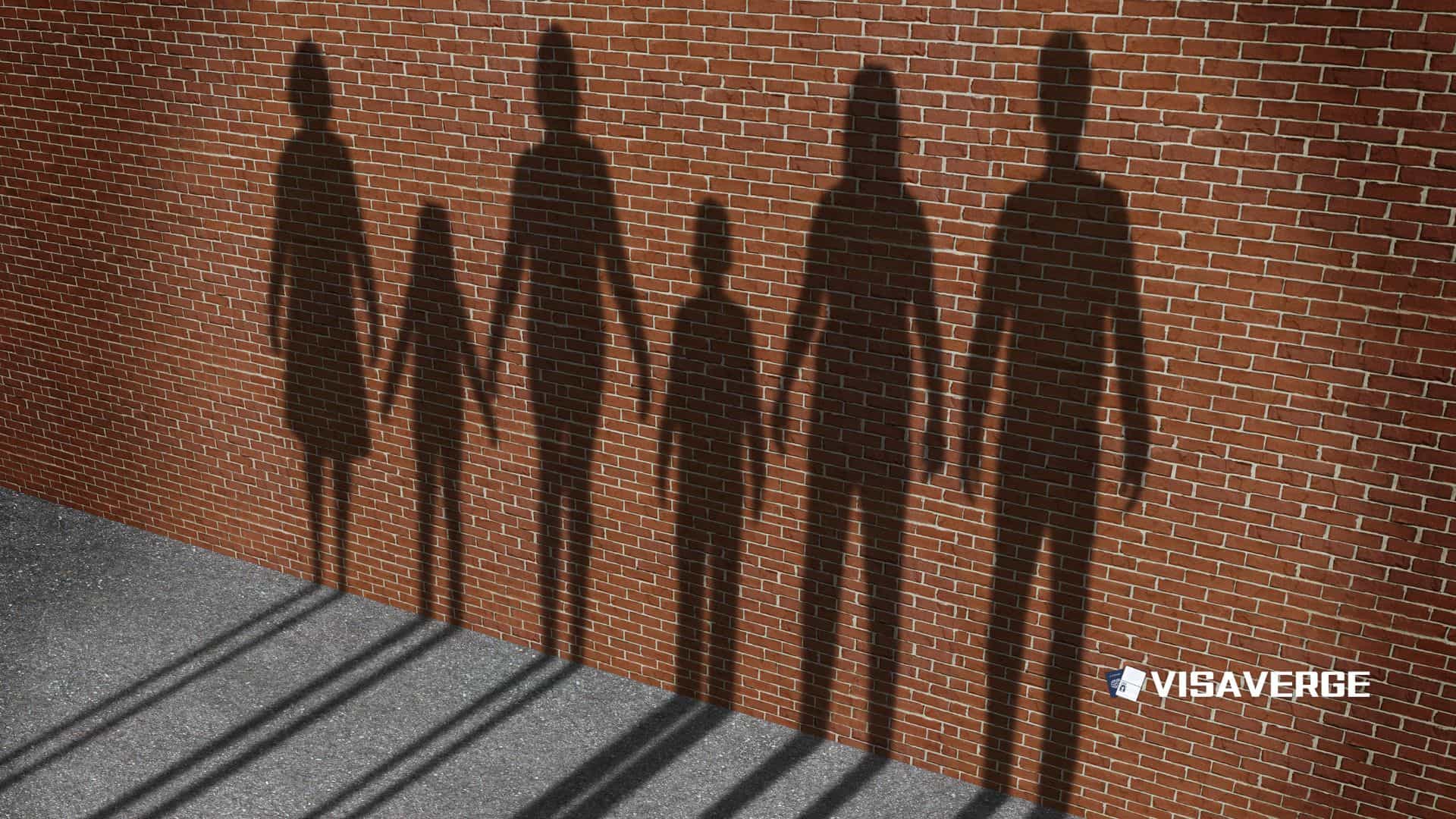(FLORIDA) Cuban migrants held at the controversial Alligator Alcatraz detention site face deepening legal limbo and mounting health risks as courts, activists, and federal officials clash over the facility’s future. As of mid-August 2025, fewer than 1,000 people are detained there, but numbers are expected to rise. A federal judge has ordered a temporary construction freeze, protests have grown, and a widely publicized hunger strike by Pedro Lorenzo Concepción has become a rallying point for families demanding answers.
Concepción, a longtime U.S. resident who lost his green card after non-violent convictions, stopped eating on July 22 and ended his 17-day hunger strike on August 9, 2025, after U.S. Immigration and Customs Enforcement (ICE) told him he was not on a deportation list. He was then moved from Alligator Alcatraz to the Krome detention center. His protest focused national attention on what detainees and attorneys describe as poor conditions, unclear legal pathways, and canceled bond hearings that keep people locked up with no clear end.

The Department of Homeland Security (DHS) first denied any hunger strike took place, calling news reports “inaccurate and unfounded.” After extensive coverage and growing public pressure, ICE acknowledged Concepción’s protest and clarified that he was not set for removal. That shift underscored a larger reality for many Cuban migrants: even after serving criminal sentences, they can remain detained because repatriation to Cuba is limited and diplomatic ties are strained.
The result is extended detention and family separation for people who, like Concepción, cannot be easily deported but also cannot quickly restore lawful status.
Facility conditions and daily life
Reports out of Alligator Alcatraz, which opened in July at a repurposed Everglades airport, describe overcrowding, unsanitary living areas, and thin access to medical care.
- The facility was designed for 2,000 detainees, with plans to expand to 4,000, but now holds fewer than 1,000.
- Day-to-day life is marked by chain-link partitions, tent compounds, and minimal privacy, according to attorneys and family members.
- Detainees and advocates report:
- Food arriving with worms
- Toilets breaking down
- Scarcity of showers
- Difficulty obtaining medicine
These conditions feed into broader concerns about detainees’ health, dignity, and the facility’s ability to provide basic standards of care.
Court orders and policy signals
On August 8, 2025, U.S. District Judge Kathleen Williams ordered a two-week halt to further construction at Alligator Alcatraz while witness testimony continues in a federal case. The order:
- Blocks new building, lighting, and infrastructure work
- Does not stop detention operations
Separate litigation developments:
- A class-action lawsuit alleges constitutional violations, denial of legal access, and canceled bond hearings.
- A preliminary injunction hearing is set for August 18, 2025.
- The court set September 23, 2025, as the deadline for responses on class certification before U.S. District Judge Rodolfo Ruiz.
Meanwhile, political leaders continue to push for expansion:
- President Trump toured Alligator Alcatraz in July and praised it as a model for future immigration detention sites.
- Florida officials are proceeding with plans for a second site in the northern part of the state, with contracts already awarded.
According to analysis by VisaVerge.com, the pending lawsuits will test whether federal courts view the current setup as violating detainees’ constitutional rights—particularly regarding due process and access to counsel.
Conditions, access to counsel, and human impact
Beyond court dockets and capacity numbers, the human element remains stark.
- Many Cuban migrants came to the United States years ago, built lives, and then lost legal status after criminal convictions.
- They finished criminal sentences but remain in custody because repatriation flights to Cuba are limited.
- As a result, many are stuck between two systems—unable to return to Cuba and unable to rebuild life in the U.S.
Family perspectives:
- Concepción’s wife, Daimarys Hernández, has become a vocal advocate for families who feel their loved ones are being punished again without a clear legal timeline.
- Families drive hours to visit, only to miss loved ones after sudden transfers. Children ask when a parent will come home—with no clear answers.
Access to lawyers is a major flashpoint:
- Advocates report that in-person meetings are rare, phone time is limited, and bond hearings are canceled or delayed.
- Attorneys say clients struggle to collect documents, connect with family, and prepare cases from inside the facility.
- These conditions, attorneys argue, erode the fairness of immigration proceedings that are supposed to be individualized and timely.
Medical care and hunger strikes:
- Reports describe detainees with chronic conditions waiting on medications, people losing weight, and hospital trips tied to hunger strikes or untreated illnesses.
- For officials, these are management challenges. For detainees, they are daily threats to health and dignity.
- DHS disputes reports of widespread neglect, saying detention operations follow standards and that claims of hunger strikes were overblown. After ICE acknowledged Concepción’s protest and moved him, many saw that as a tacit admission of strain in the system.
Finding detainees and community response
Families and community groups take practical steps to navigate the system:
- The ICE Online Detainee Locator is one of the few publicly available tools to find someone in custody and confirm location: https://www.ice.gov/detainee-locator
- Community organizations active on the ground include:
- Florida Immigrant Coalition
- ACLU Florida
These groups field calls, collect accounts for litigation, and try to help families track transfers from Alligator Alcatraz to other facilities like Krome.
Key dates and what comes next
Important deadlines and hearings now shape the near term:
- August 8, 2025 — Two-week construction freeze ordered (in effect).
- August 18, 2025 — Preliminary injunction hearing.
- September 23, 2025 — Deadline for responses on class certification.
Potential outcomes and implications:
- If courts find that bond hearings were improperly canceled or access to counsel is too limited, judges could require changes to how ICE operates Alligator Alcatraz and how quickly detainees see an immigration judge.
- President Trump’s support for expansion and Florida’s plans for a second site suggest continued federal and state interest in larger, rapidly built detention facilities.
- For Cuban migrants, this likely means more arrivals to Alligator Alcatraz and additional transfers across a growing network of sites.
Key takeaways and human cost
The situation at Alligator Alcatraz highlights an intersection of legal uncertainty, constrained diplomatic options, and human suffering—where people who served criminal sentences can remain in detention indefinitely, with families left in the dark.
Summary of critical points:
- Many detainees are in legal limbo because repatriation to Cuba is limited.
- Reports indicate poor conditions, limited access to counsel, and medical concerns.
- Courts will decide whether current operations meet constitutional limits.
- The human cost is high: indefinite detention, family separation, and uncertain timelines.
Concepción’s hunger strike turned a single case into a symbol for thousands. Whether upcoming hearings bring relief or more delay, the story of Alligator Alcatraz presses the country to decide how it treats those it holds.
This Article in a Nutshell
Alligator Alcatraz exposes legal limbo and health risks for Cuban migrants. Concepción’s July 22–August 9 hunger strike revealed poor conditions, canceled bond hearings, limited counsel access, and strained repatriation. Courts halted construction August 8, 2025. Upcoming hearings (August 18; September 23) may reshape detention practices amid political push for expansion.













